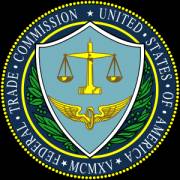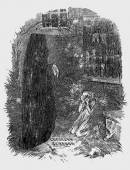 The unexpected disclosures of NSA activities by Edward Snowden presents a splendid example of U.S. government, as well as popular, indifference to world opinion. As part of its efforts to control the political damage of the embarrassing revelations, the Obama administration repeatedly stressed that only foreign nationals had been the targeted. As the breathtaking breadth of the data accessed and analyzed became clear, this rationale raised the question of how the foreign citizens - and even leaders - of U.S. allies might feel about being considered to be fair game for the NSA’s attention.
The unexpected disclosures of NSA activities by Edward Snowden presents a splendid example of U.S. government, as well as popular, indifference to world opinion. As part of its efforts to control the political damage of the embarrassing revelations, the Obama administration repeatedly stressed that only foreign nationals had been the targeted. As the breathtaking breadth of the data accessed and analyzed became clear, this rationale raised the question of how the foreign citizens - and even leaders - of U.S. allies might feel about being considered to be fair game for the NSA’s attention.
The answer to that question is that they weren’t happy. Nor, as we will see, were a group of NGOs that had no reason to think they were targeted at all.
 It’s hardly news that the Obama Administration is no friend of so-called “Patent Assertion Entities,” or PAEs. Not only members of the administration, but the big man himself have spoken publicly against those companies that make a business model out of buying and asserting patents, as compared to universities and others that actually develop, and then license, new technology (sometimes referred to as “Non-Practicing Entities,” or NPEs).
It’s hardly news that the Obama Administration is no friend of so-called “Patent Assertion Entities,” or PAEs. Not only members of the administration, but the big man himself have spoken publicly against those companies that make a business model out of buying and asserting patents, as compared to universities and others that actually develop, and then license, new technology (sometimes referred to as “Non-Practicing Entities,” or NPEs).
Most of what little we know about the business strategies, licensing practices and economics of PAEs has been gleaned from disclosures made in the course of litigation. Now the Federal Trade Commission has decided to gather some first-hand information on exactly how PAEs operate. And, because it is a regulatory agency, it can do so by asking the PAEs themselves to respond, and under oath, to boot.
 This week, Pamela Jones announced that Groklaw would shut down – this time for good. The loss of this pillar of legal journalism provides an appropriate occasion for reexamining whether our commitment to the liberties upon which America was founded still holds true. And also to consider whether pragmatism in policy development has surrendered to illogical political expediency.
This week, Pamela Jones announced that Groklaw would shut down – this time for good. The loss of this pillar of legal journalism provides an appropriate occasion for reexamining whether our commitment to the liberties upon which America was founded still holds true. And also to consider whether pragmatism in policy development has surrendered to illogical political expediency.
PJ’s final post (titled Forced Exposure) explains her decision, and is well worth your while to read. In brief, she has concluded that since she and her sources can no longer rely on the privacy of their communications, Groklaw can no longer function. And so a site that has been repeatedly recognized for the contributions that it has made comes to an end after a decade of service.
 Yesterday I distributed the latest issue of Standards Today, my free eJournal of "News, Ideas and Analysis." While the central focus of Standards Today is (wait for it...) standards, I also cover a variety of other issues, just as I do at this blog. As usual, some of the articles in this latest issue appeared in earlier versions here at the Standards Blog, while others appear for the first time in this issue.
Yesterday I distributed the latest issue of Standards Today, my free eJournal of "News, Ideas and Analysis." While the central focus of Standards Today is (wait for it...) standards, I also cover a variety of other issues, just as I do at this blog. As usual, some of the articles in this latest issue appeared in earlier versions here at the Standards Blog, while others appear for the first time in this issue.
The theme of the latest issue is the value of open standards, a much debated topic with little actual data to work with. I'm pleased to include in this issue a guest article by two Dutch professors, who take to task a government-commissioned report that found little value in preferring open standards over proprietary alternatives. The authors not only found quite the opposite, but also propose a methodology for performing further analyses in the same area.
 The Federal Trade Commission today issued the Final Order in its action against Google involving that company’s assertion of certain “standards essential patents” (SEPs). Google gained control of the patents in question through its earlier acquisition of Motorola Mobility and asserted them against various mobile device vendors. Those parties cried foul, claiming that the terms that Google had demanded were inconsistent with the obligations assumed to license the SEPS on “fair, reasonable and non-discriminatory” (FRAND) terms to all implementers of the standards in question.
The Federal Trade Commission today issued the Final Order in its action against Google involving that company’s assertion of certain “standards essential patents” (SEPs). Google gained control of the patents in question through its earlier acquisition of Motorola Mobility and asserted them against various mobile device vendors. Those parties cried foul, claiming that the terms that Google had demanded were inconsistent with the obligations assumed to license the SEPS on “fair, reasonable and non-discriminatory” (FRAND) terms to all implementers of the standards in question.
Google agreed to a settlement with the FTC this past January, following which the FTC released a draft settlement order for public comment. The Final Order just released includes a variety of adjustments and changes resulting from the 25 comments received during the public comment period. The 34 page Final Order can be found here and a seven page letter, sent to each commenter and explaining the changes made, is here.
 Yesterday, the Obama administration announced a new effort to curb baseless patent lawsuits, which it believes are stifling innovation and economic activity. The new initiative would take five actions under the President’s Executive authority, and also makes seven legislative recommendations intended, “to protect innovators from frivolous litigation and ensure the highest-quality patents in our system.”
Yesterday, the Obama administration announced a new effort to curb baseless patent lawsuits, which it believes are stifling innovation and economic activity. The new initiative would take five actions under the President’s Executive authority, and also makes seven legislative recommendations intended, “to protect innovators from frivolous litigation and ensure the highest-quality patents in our system.”
If I have seen farther it is by standing on the shoulders of giants
Sir Isaac Newton, 1676
 If the phrase “open innovation” has a familiar ring, that’s not surprising. It’s not only a popular buzz phrase, but it has the type of virtuous ring to it that instinctively inspires a favorable reaction. But like most simple phrases, it intrigues rather than enlightens. For example, is open innovation feasible in all areas of creative, commercial and scientific endeavor? If so, do the rules, challenges and rewards differ from discipline to discipline, and if it’s not universally feasible, why not?
If the phrase “open innovation” has a familiar ring, that’s not surprising. It’s not only a popular buzz phrase, but it has the type of virtuous ring to it that instinctively inspires a favorable reaction. But like most simple phrases, it intrigues rather than enlightens. For example, is open innovation feasible in all areas of creative, commercial and scientific endeavor? If so, do the rules, challenges and rewards differ from discipline to discipline, and if it’s not universally feasible, why not?
A new free eBook of essays titled Thoughts on Open Innovation explores these issues, and more.
 Perhaps the most important term in any standards organization’s Intellectual Property Policy (IPR) policy is the acronym “RAND,” standing for “reasonable and non-discriminatory” (in Europe, they add an “F” – for “fair” - at the front end, yielding “FRAND,” but the meaning is the same). Virtually every other term in such a policy will appear in one of many variations from policy to policy, and these definitions can be quite lengthy and precise. But the definition of F/RAND is always word for word the same – never is a different term used, nor is any additional elaboration provided to explain exactly what “fair” or “reasonable” are intended to mean.
Perhaps the most important term in any standards organization’s Intellectual Property Policy (IPR) policy is the acronym “RAND,” standing for “reasonable and non-discriminatory” (in Europe, they add an “F” – for “fair” - at the front end, yielding “FRAND,” but the meaning is the same). Virtually every other term in such a policy will appear in one of many variations from policy to policy, and these definitions can be quite lengthy and precise. But the definition of F/RAND is always word for word the same – never is a different term used, nor is any additional elaboration provided to explain exactly what “fair” or “reasonable” are intended to mean.
The result is that when two parties – the owner of a patent claim that an implementer of a standard can’t avoid infringing (an “Essential Claim”) and a party that wants to implement the standard – can’t agree on what the boundaries of these words should be, a third party is needed to settle the dispute.
You can find the first part of this series here
 It would be convenient and consoling to pretend that what I’ve described over the last several days is simple science fiction. But sad to say, the only thing that is doubtful about the scenario I have described is that it might be difficult for the perpetrator to build a thousand drones without Western espionage becoming aware of the plan.
It would be convenient and consoling to pretend that what I’ve described over the last several days is simple science fiction. But sad to say, the only thing that is doubtful about the scenario I have described is that it might be difficult for the perpetrator to build a thousand drones without Western espionage becoming aware of the plan.
But would that really be so hard? Many countries are building drones now; the technology is not complex. Indeed, Germany launched V-1 drones against Britain more than seventy years ago. With GPS today, building and guiding sufficiently reliable drones of the primitive type needed to stage the attack I have described is within the technical ability of every nation that could be imagined to be an enemy. And there are plenty of old ships to go around.
You can find the first part of this series here
 When the New Year’s Day sun rose in Europe and the United States, the reality of what had happened was hidden to almost all. Only a hundred or so targets had been struck, and the smoke from the ruins that remained was already dissipating. What people did immediately realize was that certain things that they were used to working now did not.
When the New Year’s Day sun rose in Europe and the United States, the reality of what had happened was hidden to almost all. Only a hundred or so targets had been struck, and the smoke from the ruins that remained was already dissipating. What people did immediately realize was that certain things that they were used to working now did not.
The things that no longer functioned included anything that relied on electricity to operate. Which was, of course, virtually everything except automobiles. This was necessarily the case, because all of the elements that coordinated and controlled the power grid had been destroyed. Even many battery powered devices were silent – the cell phones had no dial tones, and the radios generated only static, because the management software and servers that enabled telecommunications had also been annihilated. Perhaps most discomfiting of all, there was no Internet, nor any of the services that relied upon the Internet.
 The unexpected disclosures of NSA activities by Edward Snowden presents a splendid example of U.S. government, as well as popular, indifference to world opinion. As part of its efforts to control the political damage of the embarrassing revelations, the Obama administration repeatedly stressed that only foreign nationals had been the targeted. As the breathtaking breadth of the data accessed and analyzed became clear, this rationale raised the question of how the foreign citizens - and even leaders - of U.S. allies might feel about being considered to be fair game for the NSA’s attention.
The unexpected disclosures of NSA activities by Edward Snowden presents a splendid example of U.S. government, as well as popular, indifference to world opinion. As part of its efforts to control the political damage of the embarrassing revelations, the Obama administration repeatedly stressed that only foreign nationals had been the targeted. As the breathtaking breadth of the data accessed and analyzed became clear, this rationale raised the question of how the foreign citizens - and even leaders - of U.S. allies might feel about being considered to be fair game for the NSA’s attention. It’s hardly news that the Obama Administration is no friend of so-called “Patent Assertion Entities,” or PAEs. Not only members of the administration, but the big man himself have spoken publicly against those companies that make a business model out of buying and asserting patents, as compared to universities and others that actually develop, and then license, new technology (sometimes referred to as “Non-Practicing Entities,” or NPEs).
It’s hardly news that the Obama Administration is no friend of so-called “Patent Assertion Entities,” or PAEs. Not only members of the administration, but the big man himself have spoken publicly against those companies that make a business model out of buying and asserting patents, as compared to universities and others that actually develop, and then license, new technology (sometimes referred to as “Non-Practicing Entities,” or NPEs). This week, Pamela Jones announced that
This week, Pamela Jones announced that  Yesterday I distributed the latest issue of
Yesterday I distributed the latest issue of  Yesterday, the Obama administration announced a new effort to curb baseless patent lawsuits, which it believes are stifling innovation and economic activity. The new initiative would take five actions under the President’s Executive authority, and also makes seven legislative recommendations intended, “to protect innovators from frivolous litigation and ensure the highest-quality patents in our system.”
Yesterday, the Obama administration announced a new effort to curb baseless patent lawsuits, which it believes are stifling innovation and economic activity. The new initiative would take five actions under the President’s Executive authority, and also makes seven legislative recommendations intended, “to protect innovators from frivolous litigation and ensure the highest-quality patents in our system.”  If the phrase “open innovation” has a familiar ring, that’s not surprising. It’s not only a popular buzz phrase, but it has the type of virtuous ring to it that instinctively inspires a favorable reaction. But like most simple phrases, it intrigues rather than enlightens. For example, is open innovation feasible in all areas of creative, commercial and scientific endeavor? If so, do the rules, challenges and rewards differ from discipline to discipline, and if it’s not universally feasible, why not?
If the phrase “open innovation” has a familiar ring, that’s not surprising. It’s not only a popular buzz phrase, but it has the type of virtuous ring to it that instinctively inspires a favorable reaction. But like most simple phrases, it intrigues rather than enlightens. For example, is open innovation feasible in all areas of creative, commercial and scientific endeavor? If so, do the rules, challenges and rewards differ from discipline to discipline, and if it’s not universally feasible, why not? Perhaps the most important term in any standards organization’s Intellectual Property Policy (IPR) policy is the acronym “RAND,” standing for “reasonable and non-discriminatory” (in Europe, they add an “F” – for “fair” - at the front end, yielding “FRAND,” but the meaning is the same). Virtually every other term in such a policy will appear in one of many variations from policy to policy, and these definitions can be quite lengthy and precise. But the definition of F/RAND is always word for word the same – never is a different term used, nor is any additional elaboration provided to explain exactly what “fair” or “reasonable” are intended to mean.
Perhaps the most important term in any standards organization’s Intellectual Property Policy (IPR) policy is the acronym “RAND,” standing for “reasonable and non-discriminatory” (in Europe, they add an “F” – for “fair” - at the front end, yielding “FRAND,” but the meaning is the same). Virtually every other term in such a policy will appear in one of many variations from policy to policy, and these definitions can be quite lengthy and precise. But the definition of F/RAND is always word for word the same – never is a different term used, nor is any additional elaboration provided to explain exactly what “fair” or “reasonable” are intended to mean. It would be convenient and consoling to pretend that what I’ve described over the last several days is simple science fiction. But sad to say, the only thing that is doubtful about the scenario I have described is that it might be difficult for the perpetrator to build a thousand drones without Western espionage becoming aware of the plan.
It would be convenient and consoling to pretend that what I’ve described over the last several days is simple science fiction. But sad to say, the only thing that is doubtful about the scenario I have described is that it might be difficult for the perpetrator to build a thousand drones without Western espionage becoming aware of the plan.  When the New Year’s Day sun rose in Europe and the United States, the reality of what had happened was hidden to almost all. Only a hundred or so targets had been struck, and the smoke from the ruins that remained was already dissipating. What people did immediately realize was that certain things that they were used to working now did not.
When the New Year’s Day sun rose in Europe and the United States, the reality of what had happened was hidden to almost all. Only a hundred or so targets had been struck, and the smoke from the ruins that remained was already dissipating. What people did immediately realize was that certain things that they were used to working now did not.